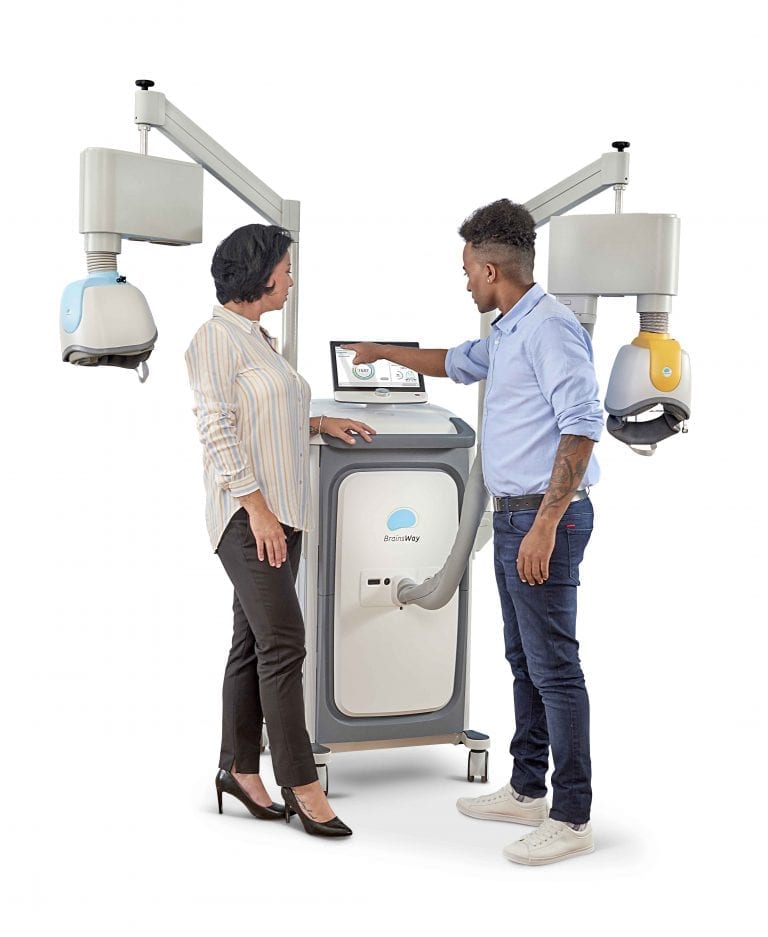
How TMS Treats Obsessive-compulsive disorder
Transcranial magnetic stimulation (TMS) uses a targeted pulsed magnetic field, similar to what is used in an MRI machine to deliver magnetic pulses to the area of the brain with weakened neurotransmitter activity causing anxiety, compulsive and obsessive thinking which can result in OCD.
What you can expect from a TMS Therapy session
Safety
Side Effect
TMS for OCD
What is the difference between regular TMS and dTMS?
Standard TMS, sometimes called RepetitiveTMS (rTMS) delivers magnetic pulses to the brain by figure-8 coils. These older coils are limited in how far the magnetic waves can penetrate. DeepTMS (dTMS) a newer technology developed and patented by Brainsway Ltd, uses three-dimensional coils in a helmet design.
What are the advantages of dTMS?
Its advantage lies in its combined ability to encompass a broader surface area of the brain stimulating deeper structures more directly within the brain, and to more efficiently target those crucial structures which are linked to mood control and mental health conditions.
Does dTMS work for OCD?
Studies have shown that approximately half the medication-resistant patients who were provided TMS treatment for OCD showed significant improvement in their symptoms. Brainsway’s dTMS system is currently the only system on the market that is cleared by the FDA to treat OCD and anxious depression.
What is the difference between TMS treatments for depression and OCD?
The procedures are relatively similar. Different parts of the brain are targeted for depression and for OCD. Brainsway Ltd has developed different helmets with unique and patented coil structures to be able to target these different areas.

Get In Touch With Us
info@lifequalitytms.com
(718) 400-0867
(718) 4000-TMS
26 Court St., Ste 808
Brooklyn, NY 11201